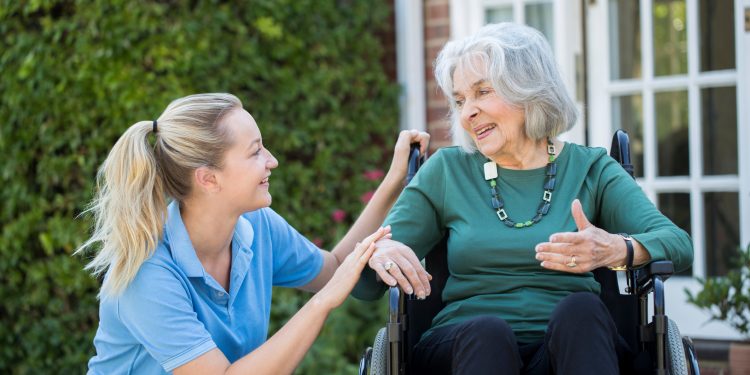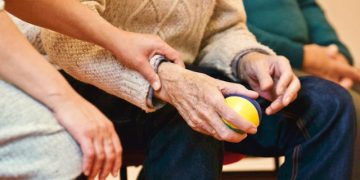Being a family caregiver is an act of love. It is a generous and selfless task that requires patience, endurance and strength of character.
While the rewards are plentiful, being a primary caregiver for a loved one can also be an emotionally and physically draining experience. For anyone devoting a significant amount of time to another, it’s vital to find a sense of balance, equanimity and time for oneself.
Here are a few ways in which you can achieve this.
Don’t Be Afraid to Seek Outside Help
While asking for help may seem like admitting defeat, that’s far from the truth. If you’re feeling overworked, tired, and stressed, you certainly won’t be putting your best foot forward — be it in a professional environment, at home or assisting the person in your care.
Seeking help from a Personal Support Worker or a Registered Practical Nurse — depending on the circumstance — will provide you with much needed respite.
Most professional at-home senior care providers will offer flexible home health care services, meaning that you can schedule support as frequently or as infrequently as you’d like.
Embrace Priceless Moments
Being a caregiver can at times feel a little monotonous. This is especially true if you’re juggling caregiving with your own family responsibilities.
To break from routine, take time to be in the moment (be present), and acknowledge breakthroughs and small moments. Maybe it’s when the person in your charge says, ‘thank you.’ Maybe it can happen when you sing along together to a song on the radio. Maybe it comes in the form of a hug or a hand pat at the end of a long day.
Focus on and embrace these moments. Journaling is a great way to reflect and cherish positive daily breakthroughs.
Join a Support Network
According to the Bureau of Labor Statistics, there’s approximately 40.4 million caregivers of adults 65+ in the U.S. Nine out of ten of these caregivers are looking after an aging relative. Being a family caregiver can be a lonely and isolating experience, especially if you live by yourself or with the person you support.
It’s important to remember that you’re not alone. By joining online or in-person support groups or chat forums, you might be able to find levity, advice, resources and validation — care and validation you may not have discovered alone.
Take Time to Exercise
It’s no secret that exercise can help you stay in physical shape, but did you know that it’s also beneficial to your mental health?
According to studies by the Centers for Disease Control and Prevention, exercise can help reduced short-term feelings of anxiety for adults. Regular exercise can also improve thinking and learning skills while sharpening judgment ability.
Physical activity can also minimize the risk of depression and anxiety. Regular exercise allows you to experience a more restful sleep — letting your body and your brain recharge.
Eat Healthy
Eating healthily helps you and can improve your caregiving duties. Take time every week for meal preparation. You could combine this task with making meals for the person in your care.
If necessary, get external help or ask a friend or family member to cover your caregiving responsibilities for a day or few hours — depending on the level your responsibility — and spend the afternoon cooking.
For some, this can be an amazing form of relaxation and enjoyment. Create a binder of go-to recipes and attend free online cooking classes on event-hosting platforms.
If you don’t enjoy cooking, connect with a professional healthcare provider to see if this is an element of caregiving that they can help you with. Some professional services may even be able to assist you with grocery shopping.
With all this said, try to avoid downplaying the important service you’re providing. You’re making a valuable difference to someone’s day-to-day, and you’re allowing a senior to live joyfully in the comfort of their own home. Just remember to take time for yourself, too.

























